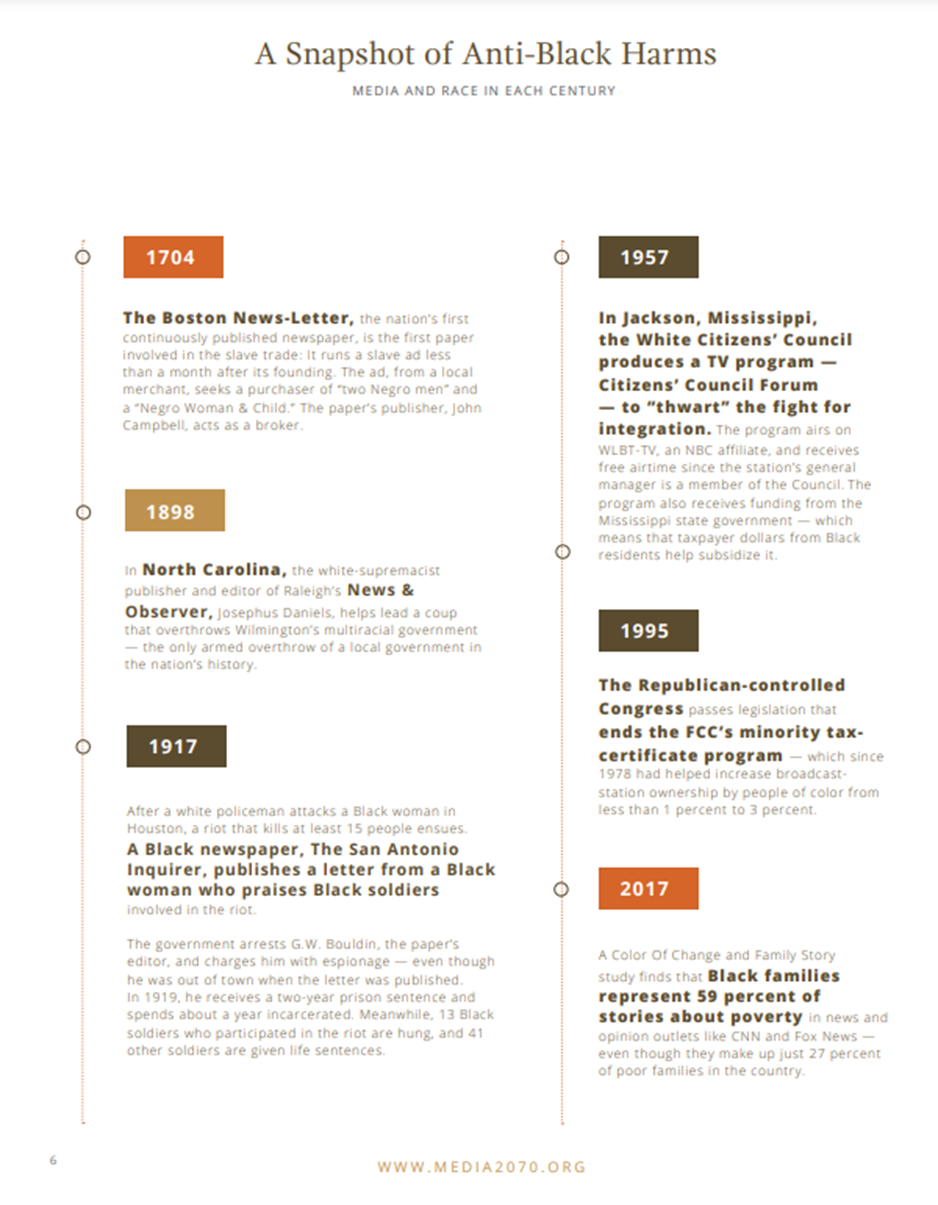Movement Journalism: The Journalism We Need For Liberation
The journalism that is written today shapes tomorrow.
Journalism is remembered in our history books as vital to many progressions society has made in the modern era. Journalists play an important role in their community as a source of information for their communities.
In moments of chaos, natural disasters, and violence individuals within a community rely on journalists to offer them clarity, grounding, and access to understanding.
However, individual journalists and the field as a whole have historically caused harm as well. Not only did newspapers serve as a space for the buying and selling of Black enslaved people, but they also helped perpetuate harmful stereotypes and rumors about Black liberation leaders and Black people in general. Many of which could be seen in this timeline created by Media 2070 outlining anti-Black harm caused by media companies and journalism.

Movement journalism seeks to address and challenge the anti-Black harm and norms that presently exist in the field of journalism and reimagine the relationship between media makers and the communities they report on.
Press On, a southern media company that claims to advance justice through the practice of movement journalism, defines movement journalism as “journalism in service to liberation. This does not mean turning journalists into soapboxes for activists, but fostering collaboration between journalists and grassroots movements, and supporting journalism created by oppressed and marginalized people.”
The Donald W. Reynolds Journalism Institute credits the first use of movement journalism to Ida B. Wells. She started reporting on the lynchings in her area through a paper she founded in 1892 called Memphis Free Speech. The term movement journalism may be new to the lexicon of old-school journalists, but the practice itself is much older. While Ida B. Wells never called herself a movement journalist, the framework and values of movement journalism were always represented in her work.
Wells was editor-in-chief of Memphis Free Speech when she reported on the lynchings of three black businessmen in Memphis. Wells was able to tell the stories of these men’s lynching through a lens many journalists of her time couldn’t simply because they lacked the connection Wells had to Memphis’s black community as well as empathy for Black people.
Movement Journalism was born out of the need for context to stories that are often published as engagement or solutions journalism. Movement journalism doesn’t just tell you what happened but instead expands these narratives to explore how and why events reported on are even happening.
While most movement journalists and researchers have different ideas of what media reparations may look like the most common asks are supporting the growth of Black-led newsrooms, hiring journalists who actually belong to the communities they represent, providing pipelines of leadership for Black journalists, and offering opportunities for Black people to financially benefit from their own stories rather than having their stories used to build wealth for White media owners and companies.
While movement journalism may not yet be embraced by mainstream and traditional media outlets, there are several media companies, nonprofits, independent journalists, and researchers deeply committed to its values and growth. While traditional media has not yet embraced movement journalists, many people would argue it is long overdue for journalism to challenge itself, and the atrocities it has committed, and commit to doing better for the communities it claims to serve.
